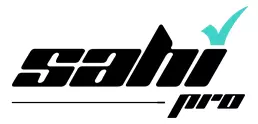
Automation testing is a critical aspect of software development. It can save time and money by ensuring that the product works as intended before it releases to the public.
Selenium is a popular web testing tool used for automating the browser. But as with any technology, there are always alternatives to consider when you need to move on from Selenium. In this blog post we will explore some of these options and show you where they may be useful in your team or company.
What is Selenium?
Selenium is a popular open-source browser automation tool used for automating the browser that helps you write automated tests with ease. It is an essential tool for software testers and automation testers. However, to handle Selenium one should be proficient in any of the programming languages like Java, Python, Ruby, JavaScript, etc.,
List of Best Selenium Alternatives
#1. Protractor

Best for angular web app testing.
Protractor is one of the top open-source Selenium alternatives specifically designed for Angular web app testing. By communicating with the application as a user, it runs end-to-end tests using JavaScript. Protractor is easy to use for Angular applications than Selenium from a programming language standpoint. Protractor is also built on JavaScript Selenium WebDriver, so your team will have all the benefits of Selenium WebDriver.
Features:
- Protractor supports Jasmine, Cucumber, and Mocha to create test suites because it is a wrapper for WebDriverJS.
- It tests the application by interacting with it like a user.
- It’s ‘Automatic Waiting’ feature allows the test to execute the next step automatically without waiting for the webpage or test to sync.
#2. Cypress

Best for developers and QA engineers.
Cypress is a newly launched framework for test automation that is completely open-source, with the exception of the dashboard application. It’s a feature-rich tool that can be regulated to meet current development needs and devices better than Selenium. It allows front-end developers to create JavaScript web test automation scripts. This tool has many features over Selenium, such as reloading the changes in real-time, monitoring the test files automatically, built-in mocking, stubbing, and spies.
Features:
- The test status menu allows you to see how many tests have been passed or failed.
- This is an alternative to Selenium that allows you to check responsive websites with viewport sizing.
- It captures snapshots of the test run. It can also record videos of the entire test run for headless execution.
- By using this tool, the developer-driven unit tests can be easily linked with the tester-driven front-end tests with which the development and testing happen simultaneously.
#3. Katalon Studio

Best for cross-platform automation testing on Web, Mobile, API & Desktop app testing.
If you are looking for a Selenium alternative that is free and easy to use, Katalon Studio is your best choice. All frameworks, ALM Integrations, and plugins are included within a single package available for Windows, macOS, and Linux. It eliminates the technical complexities, allowing testers to efficiently set up, create, run, report, and manage automated tests effectively.
Features:
- This framework offers impressive reporting capabilities, where users can send customized email alerts using HTML, Excel, and PDF test reports.
- Katalon Analytics is a built-in analytic system that provides complete views of test execution reports via dashboards that include graphs and metrics.
- Minimal maintenance effort for testing with Katalon resilient objects locators and auto-healing utilities.
- It supports various testing methodologies like Keyword-Driven Testing, Page Object Model Testing, Data-driven Testing, TDD/BDD Testing.
#4. TestProject

Best end-to-end test automation platform for web, mobile, and API testing.
TestProject is a free end-to-end test automation platform that makes Selenium testing easy. You can test web, mobile, and APIs using open source technology without all the usual headaches that come with it. TestProject helps testers and developers ensure quality with speed by eliminating maintenance & setup hassles and empowering Selenium & Appium with AI self-healing technology.
Features:
- It offers a scriptless test recorder for non-technical users, with compatible export to Selenium and Appium.
- It offers 200+ community-powered addons.
- It features an Addons library, out-of-the-box beautiful test reports, seamless integrations into your CI/CD pipelines, worldwide team collaboration options for boosting the efficiency of tests.
- TestProject has built-in integrations for Sauce Labs, BrowserStack, Jenkins, Slack, and more.
#5. Ghost Inspector

Best for visual testing, UI testing, end-to-end testing, and browser testing.
Ghost Inspector is an automated browser testing service that enables users to monitor and test websites using real browsers from the cloud. This Selenium Alternative offers a cohesive solution for easily creating, recording, managing, and running tests hassle-free. You can review detailed test results as well as get notified when failures occur. Make sure that your websites and apps are working as expected by testing them end-to-end from a user’s perspective in the real browser.
Features:
- Features that make it an alternative tool for Selenium are comparing the screenshots and email announcements, no coding requirement, a simple test editor, and the ability to run parallel tests.
- It can easily manage and share the tests among the team members, even in a large organization.
- API & Third Party Integrations with GitHub, CircleCi, Jenkins, Azure DevOps, TravisCI, TeamCity, Docker, and so on.
- It also offers Advanced Test Scheduling feature.
#6. Tricentis Tosca

Best continuous testing platform for Agile and DevOps.
Tricentis Tosca is another user-friendly Selenium alternative where you can just scan the module to automatically generate the code or scripts. It supports all types of enterprise applications. Tricentis Tosca’s advanced features increase productivity and reduce the project cost to the company.
Features:
- It supports many arrays of protocols such as HTTP(s) JMS, AMQP, Rabbit MQ, TIBCO EMS, SOAP, REST, IBM MQ, NET TCP.
- It also integrates into the Agile and DevOps Cycle.
- This tool maximizes reuse and maintainability with model-based test automation.
#7. Subject7

Best for load testing, security testing, 508/accessibility testing, manual testing, and so on.
Subject7 is a cloud-based testing platform that provides end-to-end automation capabilities via a series of commands. These commands can be accessed via a simple web interface. Each command mimics user actions and hides the complexity of industry-standard packages like Selenium or Appium, SikuliX. JMeter, ZAP, etc. It is the world’s fastest and easiest software testing automation platform.
Features:
- Its extensive APIs allow for integration into JIRA, Jenkins, GitHub, or any DevOps platform for test automation in real-time.
- It offers easy to use web interface for non-coders.
- It requires no setup and scales executions leveraging AWS, Azure, and Google clouds.
- Subject7 provides features like email notifications, video recordings, team collaboration, and more.
#8. Mabl

Best for agile teams.
Mabl is an automated script-less cross-browser test tool. It uses machine learning and artificial intelligence to allow for easy functional testing of applications. It is the only SaaS solution that natively supports Chrome, Firefox, IE, and Safari. It improves visibility and resolution time by managing all the APIs and browser tests in a single place.
Features:
- With Mabl, businesses can enable anyone on their team to contribute to software quality while increasing test coverage and product velocity.
- It tests the entire end-to-end workflow with integrated API and UI tests through a single platform.
- Users can run infinite tests in parallel.
#9. Ranorex Studio

Best for regression, keywords-driven, data-driven, and cross-browser testing.
Ranorex Studio is an all-in-one test automation solution that is easy for test automation beginners, but robust for experts. Automate your regression tests with the reliable capture-and-replay tool, drag-and-drop UI objects, and code modules for keyword-driven testing, or create tests in C# or VB.NET using Ranorex Studio’s full IDE. It supports a broad range of technologies, including difficult-to-automate legacy desktop applications.
Features:
- It supports iOS and Android testing on real devices or simulators/emulators.
- For web applications, Selenium WebDriver is built into the Ranorex core API so that you can distribute cross-browser tests on a Selenium grid.
- It integrates with tools such as JIRA, Jenkins, Azure DevOps, TestRail, Bugzilla, Git and more, so that you can build a complete automated testing toolchain.
- With the cross-browser testing feature, you can write your automated web tests once, then run them anywhere.
#10. UFT
Best for functional and regression testing.
Unified Functional Testing (UFT), formerly known as HP QuickTest Professional (QTP), provides functional as well as regression test automation for software apps and environments. It helps testers run automated tests to identify any errors, defects, or gaps contrary to the expected results of the app under test. UFT It offers features like API, web services, and GUI testing of desktop, web, and mobile applications across platforms.
Features:
- It offers advanced image-based object recognition features, reusable test components, and automated documentation.
- It supports web and all kinds of development environments like SAP, Oracle, Seibel, etc.
- This tool uses VBScript language, which is easy to use as compared to other Test Scripting Languages.
- It supports CI via integration with CI tools such as Jenkins.
#11. Froglogic Squish

Best for automated GUI testing.
Froglogic Squish is a GUI Test Automation Tool for all kinds of cross-platform desktop, mobile, embedded, and web applications. It is the tool of choice for many companies across the world to automate the functional regression tests and system tests of their graphical user interface (GUIs) and human-machine interfaces (HMIs). Squish is a 100% cross-platform tool.
Features:
- It offers full support for all desktop, mobile, web, and embedded platforms.
- It has a wide range of popular script languages for test scripting.
- It supports Behavior Driven Development and Testing. Also, it is 100% compatible with the Gherkin language, which is a standard BDD language.
- Create test cases using JavaScript, Python, Perl, Ruby, and Tcl.
#12. Sahi Pro

Best for rockstar QA engineers working on almost any tech stack.
Sahi is an open-source automation testing tool for testing web applications. It is a low-code test automation platform that enables users to work with complex test automation as easily as simple ones. Using Sahi Pro, you can combine multiple scripts into a single suite file & execute them in parallel.
Features:
- It has an inbuilt Excel framework to let your business analysts and non-technical professionals contribute towards testing.
- With this tool, you can test any iOS and Android, Native, and Hybrid Applications.
- Users can run cross-browser/multi-browser testing of complex web 2.0 applications with lots of AJAX and dynamic content.
Conclusion
This blog post discussed some of the best alternatives to selenium that are available on the market today so you can find a solution that will work for your company’s needs. Let us know if you have any questions about these tools or how they might be implemented in your own organization.
Research Process
Total tools reviewed: 16
Total tools finalized: 12
Total time spent: 78 hrs
Related posts:
